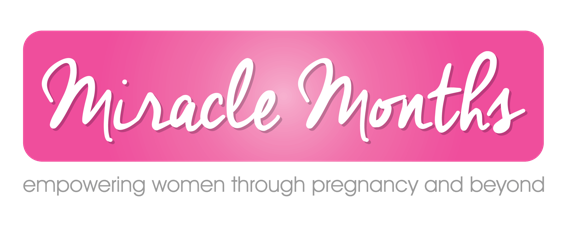The Importance Of Exercise During Pregnancy

Creator of Miracle Months
www.miraclemonths.com
We all know the common symptoms of pregnancy, back aches, restless legs, lethargy, fatigue, the list goes on. So what if there was a way to reduce or eradicate some of these aches and pains?
Good news! The answer is exercise.
Come back in time with me to 2012. I was pregnant with my first son. Whoa! Morning sickness hit me like a tonne of bricks. Exercise quickly fell by the wayside. I then won a scholarship to travel around the UK for a month. Not a bit of exercise to be seen there either.
By the time I got home and got my act together, it had been almost five months without proper exercise. I had constant pain in the middle of my back and my hips ached. I didn’t sleep well at all for the rest of the pregnancy. I felt the need for weekly massage to loosen everything up.
Fast forward two years to my second pregnancy. This time around I would not make the same mistakes. I worked out most days, even if it was a walk or teaching a class in my personal training business.
My pregnancy went down a very different road. I had no hip pain, no back pain. I slept well and had more energy. Because I was taking high intensity classes during my first trimester, I was forced to continue through the morning sickness. Low and behold, it actually gave me more energy to get through the rest of the day. Alas, the nausea remained.
There is no more important time in your life to be active than pregnancy.
Research shows women who exercise regularly throughout their pregnancy, say, from 20-60 minutes, three times per week, experience fewer aches and pains and improved sleep. They also gained less weight during pregnancy and experienced improved mental health and self esteem.
Self esteem is a critical concept here. Pregnancy is a challenging time for many women, who until now have had total control over their weight and appearance. As our body changes to accommodate a growing child, it’s easy to see why some women become anxious or concerned about their appearance. Exercise is one proven way women can continue to feel strong, fit and healthy, knowing they are doing everything possible to look after themselves.
It’s also known that women who continue to exercise during their first trimester are more likely to continue for the rest of the pregnancy.
In a study by the University of Adelaide, researchers reported a range of benefits for the babies of women who exercised during pregnancy, including a reduced chance of moderate to severe respiratory distress syndrome and reduced length of stay in hospital.
So what of birth and recovery? Well, women who exercise during pregnancy are less likely to require intervention during labour including caesarian, forceps or vacuum. Though there doesn’t seem to be an overwhelming argument that it will make labour easier or shorter. During my second pregnancy I really focused on strengthening my glutes and core in preparation for pushing, and believe my strength and fitness did serve me well. After all, labour is a marathon, and you can’t run a marathon without training.

I have also found it far easier to resume exercise this time around. I maintained a good level of fitness while pregnant and was able to pick up where I left off rather than starting from scratch.
So what exercise should you be doing while pregnant? Well it all depends on what you were doing prior to falling pregnant.
In years gone by we were given strict guidelines for exercise during pregnancy including working out with a heart rate below 140bpm, avoiding weights and running and doing the “talk test”.
What we now know is that the exercises a woman was doing prior to falling pregnant are usually safe to continue. As the pregnancy progresses women should listen to their bodies and what feels comfortable, without ego or preconceived ideas of how hard they should be going.
The most crucial points to remember is to work with your body to try to maintain fitness, not increase fitness while pregnant. Give yourself the compassion and space you deserve to rest as well as working out.
I would advise women avoid any abdominal work such as crunches and double leg lefts, as these will increase the risk of Diastsis Recti (abdominal separation), and if you are experiencing any hip or pelvic pain then avoid single leg work such as lunges.
And lastly please, ladies, look after your pelvic floor. Sure you can run and jump and skip as much as you like during pregnancy. But there are plenty of exercises you can do without putting such enormous pressure on your pelvic floor and risk years of incontinence.
So what are you waiting for, get active today!
About the author
Libby Nuttall is a women’s personal trainer in the Macedon Ranges. When she’s not hanging with her two sons, husband and Weimaraner (a.k.a; the boys), she is running high intensity fitness classes, volunteering as the president of the local playgroup, or working on her range of online, pre and post natal wellness programs, Miracle Months. Libby had her second son in December 2015 and is loving sharing the journey back to fitness and strength post baby with her social media following. This year she is looking forward to competing in a number of runs and obstacle races.
You can find her at Miracle Months
